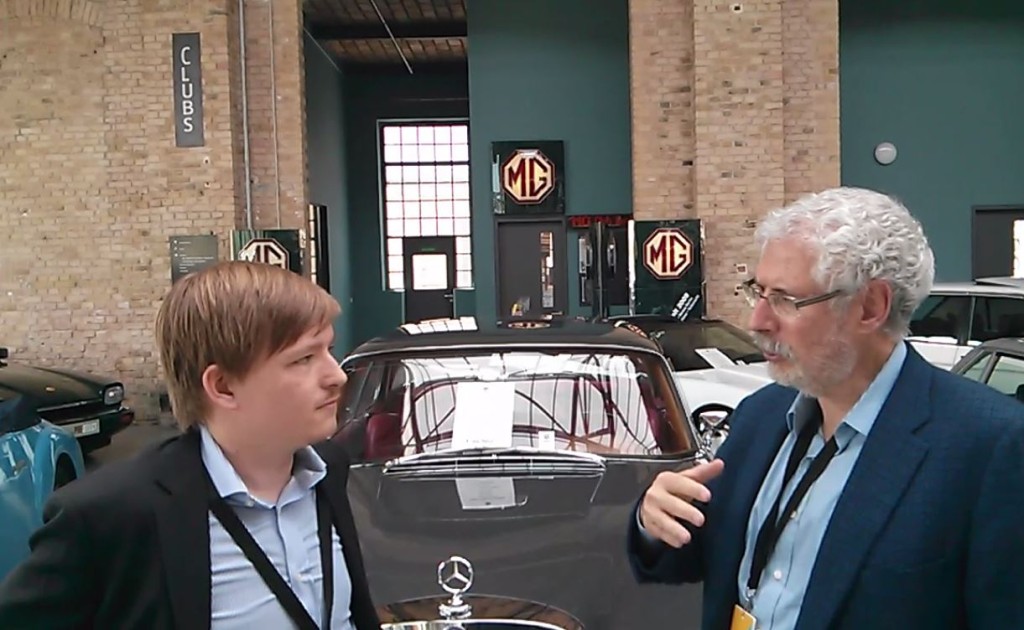Während des ersten Business Design Summit in Berlin konnte StartUp Stuttgart ein exklusives Interview mit Steve Blank, dem Begründer des Customer Development-Ansatzes, führen. Ich konnte den renommierten Serial-Entrepreneur aus dem Silicon Valley über die Entwicklung der Methoden aus der Startup-Welt und dessen Bedeutung für Unternehmen & Hochschulen befragen.
Daniel Bartel: Hello Steve, great meeting you here in Berlin. Let’s start right away: Why is the combination of the three methods Business Model Generation, Customer Development and Design Thinking finally coming together and how are they changing the way of starting new businesses?
Steve Blank: Customer Development and Business Model Design work together with something else called Agile Engineering. Those three combined Business Models, Customer Development and Agile Engineering make up what is called the Lean Startup. The design for immediate action for really stage ventures is to find out what the facts inside their Business Models are before they run out of cash. It’s oriented to immediate action and immediate feedback.
Design Thinking also has a design and user experience. My experience with it is typically done by historically large companies where you have plenty of time and plenty of money. If you fail you still own the corner office. Customer Development comes from a very different background. If you fail you are selling your house. The motivations here are actually quite different. The customer discovery part feels alike; there is a lot more immediate action happening.
Daniel: What does these new approaches by startups imply for existing corporations in terms of innovation?
Steve Blank: If you put up a whole series of tools, the corporations could start thinking about this and start using it. But innovation starts when companies recognize that there are multiple issues on multiple levels. What we heard a lot today is historically, at least for companies in the US and probably in Europe as well that they have been focused for 20 years in efficiency and execution. Innovation almost got beaten out of corporations when there has the choice of making a quarter or investing in the future. Number one is the culture has to support innovation. What I found is if you want to start innovating divisions if you have anybody with the title HR or finance between you and a C level executive you might as well not do the process. And it is not because someone is bad, it’s that we are focused on the execution part without quite understanding that the innovation part needs its different culture and its different ecosystem.
We now know how to build innovative new ventures out of large companies but the other thing we tend to forget is even if you are a capitalist, do not debt your entire fund on one company. It is recommendable to do a portfolio search. Most often, I have seen that large companies betting on one or two single initiatives not understanding that out of ten eight or nine are going to fail. In corporations failures, typically in an executive orientated culture are considered you failed at your job rather than the business you have spent.
Daniel: With our initiative StartUp Stuttgart we are approaching students as well. However, graduates have the problem that they are not familiar with the new approaches and often get attracted by big companies. How can we make a shift in the universities to teach the new skills needed e.g. with your Lean LaunchPad program so that they feel more confident in joining or even founding startups?
Steve Blank: One possibility is learning how to teach that. We open sourced the classes and the classes are online. I teach an educators course as well and we teach 60-75 educators per hour. It is very hard to teach this if you have never been a practitioner. In the United States it works because it attracts people who have actually industry experience partner with faculty and they are typically the ones that teach the class. If your business school professor historically exalted it, it works for large corporations and you have experiences about execution you may think “Startups, how hard can it be? It is only two people in a garage consulting for ten thousand people.” It will be a while for this culture to be adapted. The other thing I find is that for young entrepreneurs, unless you are convinced about this in class or you have failed before it is just some theory. But if you have gotten your hands dirty, you have been in practice, you kind of understand and it explains the bigger picture.
Daniel: Steve, thank you very much for the interview.
Mehr zu Steve Blank und seinem aktuellen Buch “The Startup Owner’s Manual” (auf Deutsch erschienen) finden sich auf steveblank.com. Kürzlich ist auch ein Artikel von ihm über die Thematik im Harvard Business Review erschienen: „Why the Lean Start-Up Changes Everything“.


